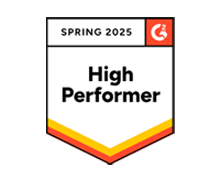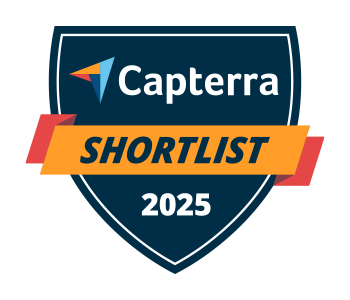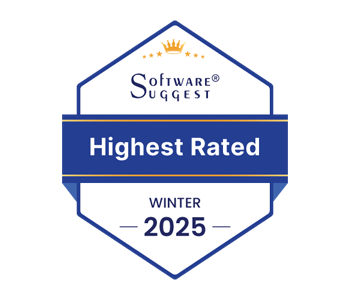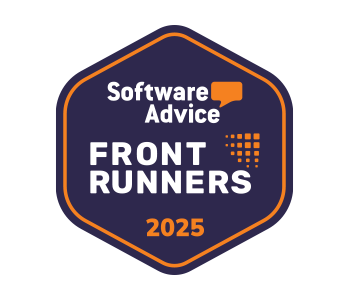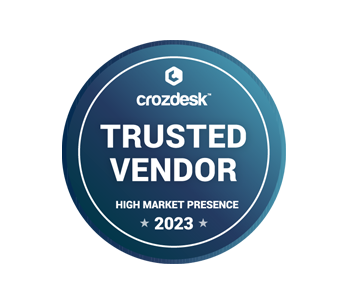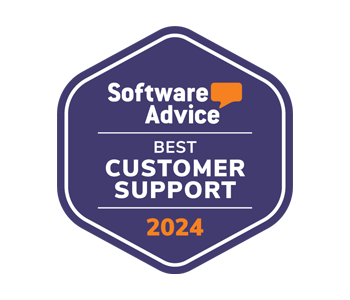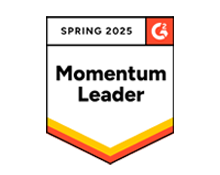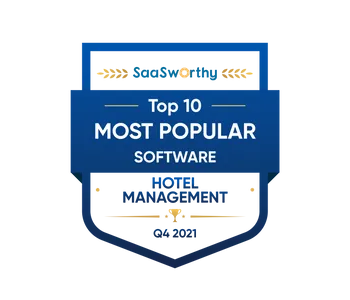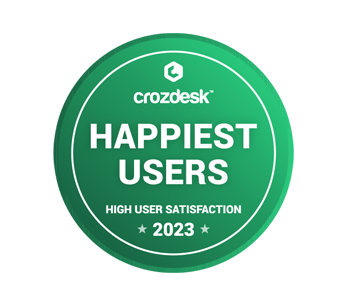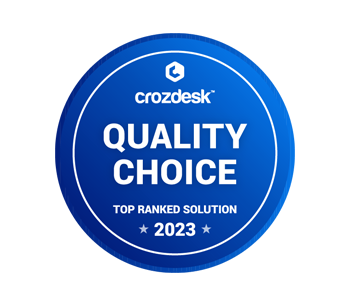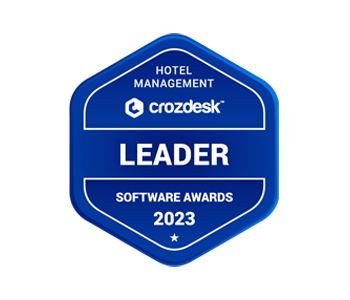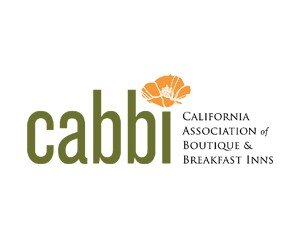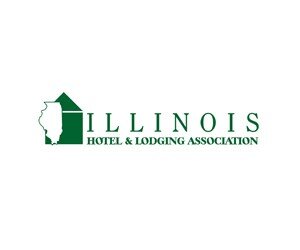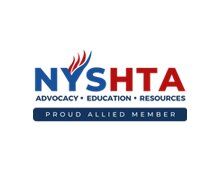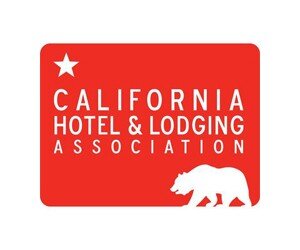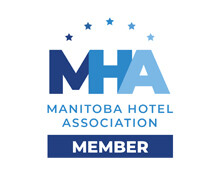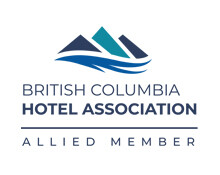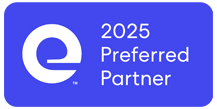As we head into summer in the Northern Hemisphere, properties are gearing up for peak season. This preparation can both excite and intimidate lodging providers. On one hand, occupancy and revenue are up (yay!), but on the other, the pressure is on to maintain top-notch service with less time and more stress (eek!).
It’s a crucial time to make a good impression and an opportunity to earn a big bunch of loyal fans. For everything to go as planned, there needs to be a plan! Here are our suggestions for getting ready for peak season.
Spruce Up Your Property
Evaluate your property through the eyes of a guest and make adjustments. Does it feel inviting? Look at the guestrooms, lobby, dining area, and outdoor spaces, then fix or replace anything showing wear and tear. Do bathrooms or showers need regrouting? Are the coffee pots and TV remotes working? Even minor improvements, such as hanging flower baskets, can make a world of difference.
It’s best to make these minor improvements before they turn into major problems. A serious issue during peak season not only costs you more money to fix, it creates lost revenue every day you can’t use the room when your property is at its busiest.
Review Data for Optimal Pricing & Distribution
Review last year’s occupancy and revenue data to help you price rooms and packages correctly, and optimize your presence across distribution channels.
Consider your competition and other factors impacting pricing and availability (like major annual events) to ensure your property is priced competitively. A revenue management system (RMS) is a big help here. Integrated with your property management system (PMS), it automatically receives your inventory, rate, and availability information and analyzes it along with market and competitor data to make informed price recommendations. Length of stay restrictions come into play here too; you may be able to implement these during especially busy times and save on turnover costs.
Optimize distribution by reviewing which channels yielded the most profit last season and use the data to determine the best strategy going forward, taking into account any new channels you’ve added since then. For instance, if direct bookings increase over summer, consider reducing OTA inventory and save on those commission fees. Pro tip: Reexamine any OTA loyalty programs and visibility boosters you use and check that cost and performance are as expected.
Think about performance indicators you’d like to monitor over this busy season that can help you prepare for the next one. In addition to crucial metrics like ADR, RevPAR, occupancy, and average LOS, you can drill down into your data to track things like group vs transient revenue, your most popular rates and packages, booking lead times—anything you want, really. WebRezPro enables you to create custom reports and have them automatically emailed to the right person when they’re needed.
Streamline Online Reservations
The booking process is part of the guest experience, and it should be as smooth as possible. Make sure your direct online booking engine is ready for the wave of summer bookings with a simple, mobile-friendly user interface, quality room photos, and automatic booking confirmations. Take advantage of your booking engine to sell summer packages and add-ons that offer guests more value and drive more revenue.
Like your online booking engine, your third-party channels (OTA, GDS, and metasearch channels) should be integrated with your property management system to automate distribution and reservation management across all sites. That way, your PMS sends live rates and availability directly to your online booking channels and captures bookings from those channels automatically. This not only saves time by reducing your administrative load (which is especially important during peak season!) but also reduces the risk of manual errors and prevents double bookings (which avoids unhappy customers and bad reviews!).
Hint: If you haven’t already, complete your Google Business Profile and take advantage of their free direct booking links.

Strengthen Customer Relationships
Review the guest data in your PMS to get a sense of who frequents your hotel so that you can tailor the season’s offerings specifically to them. This data provides insights such as where guests come from, how far in advance they book, what kind of travelers they are (families, baby boomers, corporate eventers), and their preferred ancillary services.
Remember, this data does nothing unless you act on it. If you find that the majority of your guests this time of year are family vacationers with young children, put some stuffed animals in the gift shop.
Once you’ve used this data to create relevant and irresistible packages and offerings, you need to let guests know about them in advance. Promote offers across your marketing channels, including your website, social media accounts, and via segmented email campaigns.
Speaking of email, it’s important to communicate with your customers throughout the guest journey to let them know what to expect and help them enjoy their stay to the fullest. In addition to booking confirmations, WebRezPro allows you to set up automated pre-arrival/check-in and post-stay email templates that are personalized and triggered based on reservation data to ensure every guest receives the right message at the right time. With a guest messaging integration, you can send these messages by SMS instead.
Gear Your Website for Summer
Fresh, relevant content is key for SEO and customer engagement, so shake the dust off your website to reflect your property’s summer vibe. Swap cozy winter images for photos of your property’s best summer features (like the sparkling pool) and make sure all content is up to date, including rates and packages.
Descriptions, images, videos, event calendars, local information, and blog posts should promote the season’s appeal of your property and location.
Be Active on Social Media
Social media is a key component of travel marketing with over a third of consumers around the world using it for inspiration. Create social media posts about your property and location and link back to relevant content on your website whenever appropriate—to the local events listing page, attractions and activities, special packages, blog posts, etc. Repurpose and repackage content to save time and emphasize your most important information.
Blog posts provide especially good fuel for social media. Both these outlets are meant to entertain and educate, so there’s a significant amount of overlap. Although time is short during the summer rush, it pays to produce regular posts when your online audience is larger. You can always write posts at a quieter time and schedule them to go live later.
To encourage online engagement and user-generated content, make guests aware of your social media presence. Include social media buttons on your website and email communications and add your handles to printed materials like lobby signage and in-room welcome packages.
When guests post about you, use social media listening tools such as Hootsuite to catch these mentions. Then repost, share, and tag!
Review Your Review Management Process
Peak season is a prime opportunity to boost review volume with more guests to ask for feedback and more eyes on those reviews. Do you have a process in place for requesting guests to review? Post-stay feedback requests can (and should) be automated through your property management system, but you can check in with guests during their stay too, to identify any issues early on and remedy negative experiences before they turn into bad reviews. This is best done by asking them when you see them if they are enjoying their stay and if there’s anything you can do to make it better. Guest messaging integrations work well here too; reaching out to guests via SMS is unobtrusive, immediate, and convenient for both guests and staff.
Respond appropriately to feedback, both positive and negative. Though negative feedback may feel most urgent, you don’t want to neglect the positive. Failing to respond when someone says something nice can turn that positive experience negative. If you’re not sure what to say, ChatGPT can help you craft responses, but be sure to tweak them to reflect your brand voice and address specifics. Never copy and paste responses from one review to another.
Reputation management systems such as Revinate make managing reviews much easier. These systems enable you to gather, monitor, and respond to reviews across a variety of channels, from a single dashboard. It’s another way to save time.

Prepare Your Team
Review your staffing requirements (taking a look at last year’s occupancy helps here too) and hire and prepare any new staff you may need.
Open communication is important. Regularly sharing goals and key performance metrics with your team and reinforcing how every staff member contributes to the property’s success provides clear direction and breeds a sense of ownership.
Give your staff a refresher on your technology, policies, customer service strategies, and anything else they should know. Reviewing procedures and even role playing difficult situations boosts staff confidence in dealing with various requests and complaints. They won’t know how you want tricky situations handled unless you go over it with them. What’s your policy on free upgrades? What about late checkouts?
Encourage staff to voice concerns during regular workplace meetings or privately so that any issues are nipped in the bud. They don’t only see your guests as data points in your PMS, they interact with them every day and so are well-placed to tell you before something goes wrong.
Last but not least, motivate yourself and your staff for the hard work ahead! Pizza nights, time off, and positive feedback are all ways to show appreciation. If you give good employees an inch when they need it, they feel much better about giving you a mile.
Upgrade Hotel Tech
Automate where possible and upgrade outdated systems that cost your staff time. Does accomplishing tasks with your current tech take more steps than it should? Is there a lack of customer support?
Your property management system is key to success because it’s the central hub of operations, the roundabout through which traffic has to flow. If it isn’t working smoothly, none of those commuters are getting anywhere. A good PMS improves efficiency and enhances interdepartmental communication by synchronizing data and automating administrative tasks.
Self check-in is a great example of this. With the right software, guests can complete registration online, make payment, and access their room keys all without stopping at the front desk, which saves time for everyone.
Integrating your other hotel systems with your PMS is another way to streamline operations by eliminating the need for staff to manually duplicate data between systems. For example, a POS integration allows you to charge restaurant purchases to guest rooms automatically. A guest messaging integration allows you to send automated text messages. Finding ways to streamline workflows while enhancing the guest experience is key during busy times!
Peak season is a hectic, stressful time for the team, but it’s so important for operations to run smoothly. A little preparation earns a lot of loyal guests and paves the way to a more enjoyable summer for you and your customers alike.
Editor’s Note: This post was originally published April 2016 and last updated May 2024.







